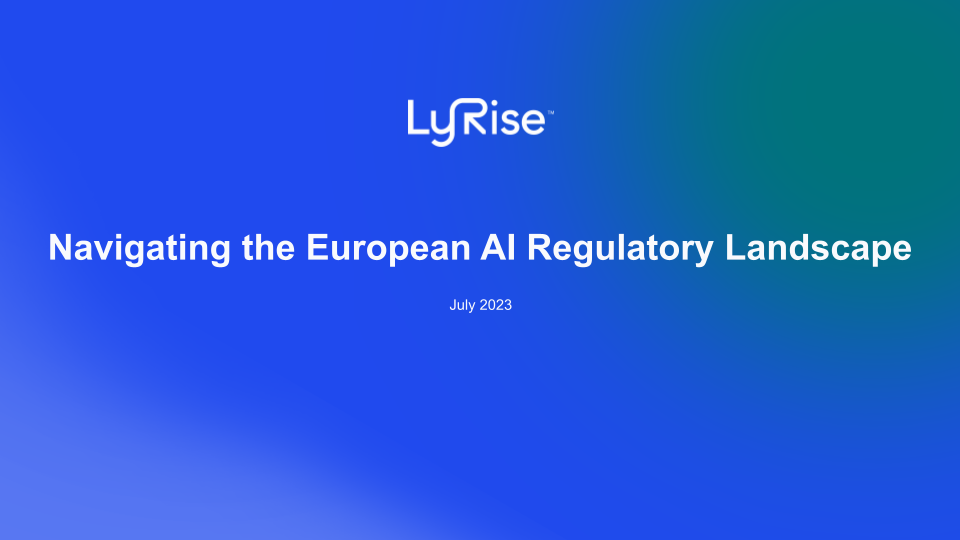AI in Financial Services: 5 Applications for Success

Artificial intelligence (AI) is crucial in the global financial landscape, which is constantly changing. In response to industry developments, banks and financial services providers prioritise digitization, with AI, including machine learning, natural language processing, computer vision, and robotics, having the potential to alter the financial services sector. After COVID, AI adoption quickens, bringing banks gains in productivity, income, and risk management. Value propositions, risk management, operations, customer acquisition, and experiences are all areas where AI is now used. Additionally, Generative AI, albeit it has issues with data quality, legislation, and interpretability, can transform Bank Secrecy Act (BSA) and Anti-Money Laundering (AML) compliance by improving monitoring, risk assessment, reporting, and case management. AI integration in financial services can improve operations, reduce expenses, and increase income.
The incorporation of AI into your product offering can considerably improve operations, reduce expenses, and increase profitability for founders and operators in the financial services sector. Let's explore ten AI applications that are transforming the financial industry, each of which has a distinct effect on organisations.
1. Prevention of Fraud
Impact: By averting financial losses, real-time fraud detection can save firms millions of dollars. For instance, JPMorgan Chase has created a machine learning algorithm that can instantly analyse thousands of transactions and spot trends that can point to fraud. The algorithm has assisted the bank in preventing millions of dollars' worth of fraud and uses a combination of supervised and unsupervised learning to increase its accuracy over time. JPMorgan Chase also makes use of AI-enabled solutions for phishing attack early detection.
ROI: As it reduces fraudulent activity, the expected ROI could reach 25–30%.
Required talent: Data scientists and AI engineers who have a background in anomaly identification.
2. Trading Methods
Impact: AI-driven trading algorithms can forecast market trends and optimise investment strategies by analysing market trends. For instance, BlackRock has created an Aladdin machine learning system, which can analyse enormous volumes of market data and offer insights that guide investing decisions. Hundreds of financial institutions employ Aladdin, which has improved investment performance and decreased risk. Aladdin by BlackRock has surpassed the $1 billion revenue threshold. The significance of Aladdin's past and the possibilities of AI in asset management are highlighted in this essay.
ROI: Depending on the profitability of a trade, ROI might range from 15-20%.
Required talent: Machine learning engineers and quantitative analysts.
3. Risk Administration
Impact: AI can identify potential dangers, assisting with well-informed loan and investment decisions. For instance, Allianz Global Investors has created a risk management tool called Risk Monitor that uses artificial intelligence to analyse market data and spot potential threats immediately. The solution, which has assisted the business in lowering risk and enhancing investment performance, uses machine learning algorithms to increase its accuracy over time. In their definition of AI as an opportunity for their business model, Allianz Global provides other instances of how they use the technology.
ROI: Risk management has the ability to produce a ROI of 20–25%.
Required talent: Data scientists and risk analysts with domain expertise.
4. Automated Corporate Finance
Impact: Automating accounting and other financial procedures lowers errors and boosts productivity. For instance, Lemonade analyses claims data using machine learning algorithms, and then automatically approves or denies claims in accordance with predetermined criteria. This has aided the business in increasing productivity and lowering fraud.
ROI: Due to lower labour expenses and fewer errors, ROI may be greater than 30%.
Required talent: AI engineers and financial specialists.
5. AI-powered Chatbots
Impact: Real-time customer support enhances satisfaction and loyalty. American Express, for example, has developed an AI-powered platform called "Ask Amex" that uses natural language processing to understand customer queries and provide personalized responses. The platform has helped the company to improve customer satisfaction and reduce the workload on customer service representatives.
ROI: A significant ROI of 15-20% from improved customer retention.
Required talent: Natural language processing (NLP) engineers and UX designers.
Stay ahead with LyRise
In a nutshell, AI isn't just a buzzword; it's an accelerator for your business. With potential returns on investment soaring as high as 30%, embracing AI is a smart move. We have 3000+ vetted AI engineers that can be instantly matched with an opportunity to work on one or more of the use cases above.
To stay ahead in this evolving landscape, subscribe to our newsletter on LinkedIn. Let us know what you think and book a call with one of our AI experts.
If you found this article helpful, don't keep it to yourself. Share it with your network.



